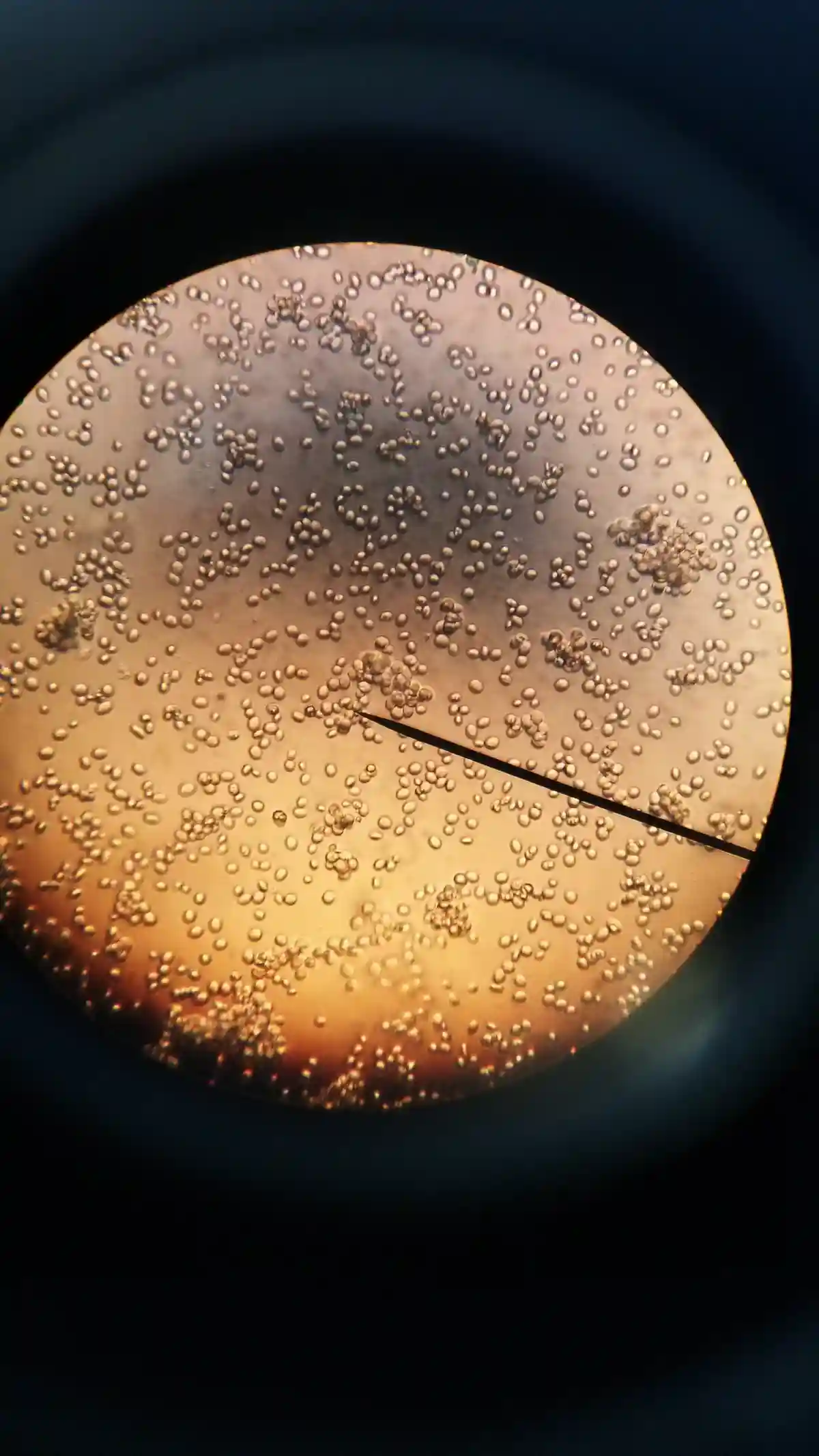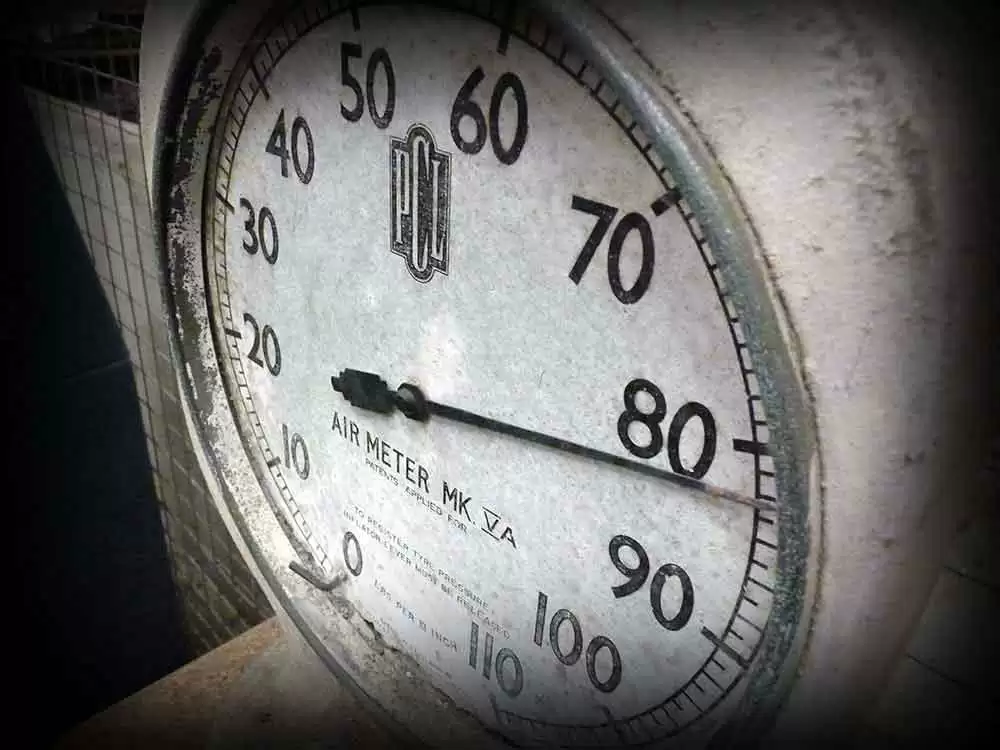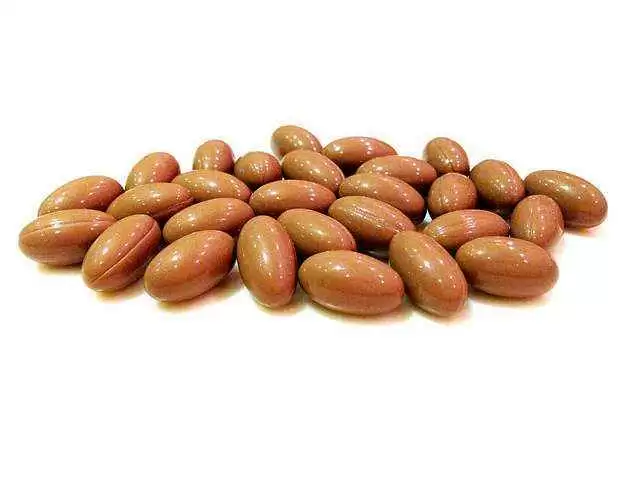-
Welcome to Celiac.com!
You have found your celiac tribe! Join us and ask questions in our forum, share your story, and connect with others.
-
Celiac.com Sponsor (A1):
Celiac.com Sponsor (A1-M):
-
Get Celiac.com Updates:Support Celiac.com!
Search the Community
Showing results for tags 'safety'.
-
Celiac.com 01/17/2024 - Maintaining a gluten-free diet is a constant journey for those with celiac disease, and remaining vigilant about food ingredients in everyday products is paramount. One such ingredient that has sparked discussions in the gluten-free community is yeast. Commonly used in the crafting of various foods and beverages, from the frothy pints of beer to the comforting aroma of freshly baked bread, yeast's historical ties to wheat and barley raise legitimate concerns for those steering clear of gluten. A team of researchers recently set out to analyze the intricacies of gluten analysis in dried yeast and yeast-containing products, and to shed light on the safety of yeast for people on a gluten-free lifestyle. The research team included Laura K. Allred, Mitchell G. Nye-Wood, and Michelle L. Colgrave. They are variously affiliated with the Gluten Intolerance Group of North America, Auburn, WA 98092, USA; and the School of Science, Edith Cowan University, Joondalup, WA 6027, Australia. Their research journey was not without challenges, considering that yeast organisms actively break down any gluten present in the product, questioning the efficacy of traditional antibody-based detection methods. The study employed both competitive Enzyme-Linked Immunosorbent Assay (ELISA) and liquid chromatography-mass spectrometry to estimate gluten protein levels in various yeast and yeast-containing products. The gold standard of gluten safety, as defined by Codex Alimentarius, is a threshold of 20 mg/kg (parts per million, ppm). The findings revealed a generally reassuring picture. Products like yeast extracts and nutritional yeast predominantly boasted gluten levels below the established safety threshold. This aligns with the expectations of many individuals on a gluten-free diet who often turn to nutritional yeast as a flavor enhancer and source of essential nutrients. However, the study also uncovered exceptions, emphasizing the need for meticulous scrutiny. Two of the samples analyzed, a sourdough starter culture and a brewer’s yeast nutritional supplement, contained wheat and barley gluten at levels estimated to be greater than 20 ppm by both the competitive ELISA and LC–MS/MS methods. These anomalies underscore the complexity of the gluten landscape and the importance of comprehensive testing. The study's use of both competitive ELISA and liquid chromatography-mass spectrometry showcased their comparable effectiveness in detecting wheat and barley gluten in yeast-containing products. This dual-approach validation provides a robust foundation for evaluating gluten safety, and offers assurance to those who navigate the intricate world of gluten-free living. Read more in Foods 2020, 9(12), 1790
- 2 comments
-
- celiac disease
- gluten-free
-
(and 3 more)
Tagged with:
-
Celiac.com 08/28/2023 - Living with celiac disease comes with its unique set of challenges, and one of the most intricate aspects is managing your dietary needs in social situations. Whether it's dining out at a restaurant, attending parties, or simply joining friends or colleagues for a meal, navigating celiac disease in these scenarios requires a blend of awareness, communication, and preparedness. In this article, we will delve into practical strategies that individuals with celiac disease can employ to effectively manage their dietary requirements while still enjoying the social aspects of eating with others. The Etiquette of Bringing and Serving Gluten-Free Food In many social gatherings, it's not uncommon for attendees to contribute dishes to the meal. For individuals with celiac disease, bringing and serving gluten-free food is not only a way to ensure their dietary safety, but also an opportunity to educate and engage others in understanding their needs. Here are some etiquette considerations to keep in mind: Communicate Ahead of Time: If you're attending an event where you know food will be served, consider reaching out to the host in advance to discuss your dietary requirements. This gives them a chance to accommodate your needs and helps avoid awkward situations. Bring a Dish to Share: Prepare a delicious gluten-free dish that you can bring to the gathering. Not only will this ensure you have safe options to eat, but it also introduces others to the idea that gluten-free cooking can be good, and it can spark positive conversations about the gluten-free diet and celiac disease. Label Clearly: If you're contributing a gluten-free dish, label it clearly to prevent cross-contamination. Use a bold marker or tape to clearly indicate that the dish is gluten-free, and include a separate serving utensil that is also labelled. Identify Danger: If you are at a gathering that offers different foods on a shared table, be sure to look over everything closely before eating anything. Could the potato chips have cookie crumbs on them? Notice how things are laid out, how people are taking food from the various dishes, and avoid anything that might be contaminated. Does every dish have its own serving utensil? If you are at a BBQ, hopefully you can speak with the cook and be sure that your burger wasn't cooked where he might be heating up wheat buns. Pay attention to the details, and if things look sketchy, sometimes it's best to avoid eating at all (but hopefully you brought a safe dish or backup snack). How to Not Embarrass Others When Declining Unsafe Food Politely declining food that doesn't meet your dietary needs can sometimes be a delicate task, especially when you don't want to offend the host or others. Here are strategies to handle this situation with grace: Express Gratitude: Start by thanking the host for their thoughtful gesture in offering you food. Emphasize your appreciation for their effort while gently mentioning your dietary restrictions. Educate Politely: Politely explain that you have celiac disease, which means you can't consume foods containing gluten. You might mention that even small amounts of gluten can cause health issues for you. Suggest Alternatives: If possible, suggest alternatives that would be safe for you to eat. This not only showcases your positive approach but also eases the host's concern about accommodating your needs. The Best Strategies for Dining at Restaurants Safely Dining out at restaurants requires an extra level of vigilance to ensure your meal is truly gluten-free. Here are effective strategies to consider: Research Ahead: Before choosing a restaurant, research their gluten-free options online or call ahead to inquire about their practices for avoiding cross-contamination. If you've been invited to a restaurant by others, find their online menu to see if they have gluten-free offerings, or call the restaurant directly during non-busy hours to see if they offer safe dishes. Be Specific with Servers: When you arrive at the restaurant, communicate your dietary needs to the server clearly and confidently. Ask about menu items, ingredients, and preparation methods. Emphasize Cross-Contamination: Stress the importance of avoiding cross-contamination to the server. Ask if they can take extra precautions, such as using separate utensils and cooking surfaces. If they offer gluten-free pasta, be sure that it is cooked in a separate pot from regular pastas. Avoid Risky Dishes: Opt for naturally gluten-free dishes or items that require minimal modifications. Steer clear of foods that are more likely to be contaminated, such as fried items or dishes with complex sauces. Other Considerations for Social Situations Carry Gluten-Free Snacks: Keep a stash of gluten-free snacks in your bag or car. This ensures you have a safe option in case the available food is not suitable for you. Educate Friends and Family: Take the time to educate your close friends and family about celiac disease. This creates a support network that understands your needs and can advocate for you in social situations. Develop Go-To Dishes: Master a few gluten-free recipes that you can confidently prepare and bring to gatherings. This guarantees you have a delicious option and encourages others to enjoy gluten-free food. Likewise, understand how different dishes are prepared so you can ask the right questions when eating in a restaurant or someone else's home. Navigating celiac disease in social situations requires a blend of proactive planning, effective communication, and an understanding of your own needs. By employing the strategies outlined in this article, you can confidently participate in social gatherings, enjoy meals at restaurants, and foster an environment of awareness and inclusion. Remember, your health and well-being are of paramount importance, and with the right approach, you can savor every social occasion while staying true to your dietary requirements.
-
- dining
- dining out
-
(and 6 more)
Tagged with:
-
Celiac.com 04/13/2023 - Contrary to popular medical wisdom, a recent study suggests that some celiac disease patients who occasionally ingest gluten may not experience significant clinical symptoms or small bowel damage. A gluten-free diet is currently the only medically accepted treatment for celiac disease, but adherence can be challenging, and many patients report occasional voluntary transgressions. Eating a gluten-free diet lowers the quality of life for most celiac disease patients, many of whom frequently ask if it's okay to occasionally ingest gluten-containing food. To get a better idea of the issue, a research team evaluated celiac patients reporting voluntary and occasional transgressions to their gluten-free diet. The Research Team The team included Luca Elli, Karla Bascuñán, Lorenzo di Lernia, Maria Teresa Bardella, Luisa Doneda, Laura Soldati, Stefania Orlando, Francesca Ferretti, Vincenza Lombardo, Giulio Barigelletti, Alice Scricciolo, Sabrina Fabiano, Maurizio Vecchi & Leda Roncoroni. They are associated with the Cancer Registry Unit, Fondazione IRCCS Istituto Nazionale dei Tumori, Milan, Italy; the Center for Prevention and Diagnosis of Celiac Disease, Gastroenterology and Endoscopy Unit, Department of Pathophysiology and Transplantation, Fondazione IRCCS Ca’ Granda Ospedale Maggiore Policlinico, University of Milan; the Department of Health Sciences, University of Milan, Milan, Italy; and the Department of Biomedical, Surgical and Dental Sciences, University of Milan, Milan, Italy. Celiacs Voluntarily Eat Gluten- The Study Researchers prospectively enrolled 109 celiac patients who reported occasional and voluntary gluten ingestion and a group of patients on strict gluten-free diet as controls. The study involved clinical examination, blood tests, duodenal biopsy, capsule enteroscopy, and a validated food-frequency questionnaire to assess gluten intake. The results showed that 57% of noncompliant patients did not present any histological alteration, and 70% did not present any alteration at capsule enteroscopy. Furthermore, 75% of patients reported no gastrointestinal symptoms after gluten ingestion. The findings suggest that celiacs can achieve a degree of tolerance towards gluten consumption can be reached, and occasional gluten intake may not necessarily lead to significant clinical symptoms or small bowel damage. However, the researchers highlight that strict gluten-free diet adherence is still the best course of action to prevent long-term complications, and more research is needed to understand the mechanisms behind tolerance towards gluten ingestion in celiac patients. Clearly this result runs counter to popular wisdom, and even to some science. The conclusion will likely cause a stir in the celiac and the medical and scientific communities. For people with celiac disease, it's crucial to have a clear picture of the proper parameters of treatment. With so much at stake, for both doctors and, especially patients, it's clear that more research is needed to get a truly clear picture of the effects of minor gluten-consumption on people with celiac disease. Read more at BMC Medicine
- 3 comments
-
- celiac disease
- cross-contamination
-
(and 6 more)
Tagged with:
-
Celiac.com 05/06/2022 - To the newly diagnosed celiac patient, beginning a gluten free diet is often overwhelming, confusing, and sometimes, depressing. Initially it may be a relief to finally have a diagnosis. All seems easy and uncomplicated when sitting in the comfort of the doctor’s office. A visit to the store and the purchase of a few things that may be safe to eat is the time when most of us come face-to-face with the fact that life as we knew it is over. If you are lucky and do some homework, you find that gluten is hidden in almost everything. Gluten is the protein in wheat, rye, barley and oats. Or is it? Conflicting information regarding gluten abounds. Some authorities believe oats are safe for the celiac patient, and gluten is frequently being listed as including only wheat, rye, and barley. Too many people—especially the newly diagnosed—receive conflicting information. They aren’t even sure what gluten is, and then they have to contend with the added misinformation about oats. It is a difficult situation—that sometimes gets even worse. For instance, we are continually amazed by the number of people that think that a “little” gluten is okay. Unfortunately, too many doctors and dieticians tell their patients that as long as their symptoms are gone they can safely have gluten occasionally. This is just plain wrong. It goes far beyond the oats debate in the literature, and it is of concern to those of us who have maintained a gluten free diet with zero symptoms and clean blood tests for many years. But what about eating oats? According to Hogberg, et al., oats “can be accepted and tolerated by the majority of children with CD” (1) . This conclusion is based upon their finding that those subjects who consumed oats showed intestinal and serological recovery after one year of the diet. The indicators used to measure this recovery were blood tests and biopsies. The same group also reports that while 20% of the test subjects dropped out of the study, all subjects who stayed with the study showed no adverse effects from including oats in their diets. But what about the 20% who dropped out? How carefully were the symptoms of any of the subjects in this study monitored? Because these subjects were newly diagnosed, there was no basis for comparison with their previous experience and/or symptoms on a gluten-free diet. In counterpoint to the Hogberg group’s findings, a very different story is told by the research conducted by Peraaho et al. They looked at the impact of oats on the quality of life along with gastrointestinal signs and symptoms. They compared these findings to similar examinations of a control group of celiac patients who were eating a gluten-free diet that did not include oats (2) . While the quality of life did not differ between these groups, those eating oats experienced significantly more frequent diarrhea. They also experienced more severe constipation, and a small but significant increase in intraepithelial lymphocytes was revealed in their biopsies. The Peraaho group did report, in congruence with the Hogberg et al. findings, that the villous architecture did not differ between groups, and antibody levels did not increase among those eating oats. Both studies are very revealing. They show us that symptoms can sometimes be more revealing than test results, and that the serological and endoscobic evidence, without counting intraepithelial lymphocytes (IELs) can only provide a crude measurement of disease. While the Marsh system for evaluating biopsies for celiac disease requires counting IELs, and is widely accepted, too many pathologists and gastroenterologists continue to rely on the villous morphology alone when they rule out celiac disease. Peraaho et al. identified two important weaknesses in research that suggests oats are safe for celiac patients. First, the intestinal biopsy will miss a number of cases of celiac disease if IELs are not counted, so oats advocates should include IEL counts. Second, many celiacs are exquisitely sensitive to gluten, and their reactions are far more accurate than many supposedly objective tests (please bear in mind that some/many of us can be symptom-free while the disease progresses and gluten causes internal injuries). Thus, the level of our well-being is in our own hands and is a function of the extent to which we comply with the gluten-free diet. Further, many of us are simply not able to tolerate oats. We suggest the following approach: First, ensure that your diet is absolutely gluten free, including hidden gluten and cross-contamination. Then, if the idea of adding a grain to your diet is important to you, try oats that have not been contaminated through growing, harvesting, or processing. If you remain symptom free when eating oats, enjoy. Be aware, however, that a significant portion of celiac patients clearly react to oats, and the elevation of IELs, along with the increased bowel symptoms should suggest erring on the side of caution and avoiding oats if any signs or symptoms appear. Co-authored by and Ginny Nehring. References: 1. Hogberg L, Laurin P, FalthMagnusson K, Grant C, Grodzinsky E, Jansson G, Ascher H, Browaldh L, Hammersjo JA, Lindberg E, Myrdal U, Stenhammar L. Oats to children with newly diagnosed coeliac disease: a randomised double blind study. Gut. 2004 May;53(5):649-54. 2. Peraaho M, Kaukinen K, Mustalahti K, Vuolteenaho N, Maki M, Laippala P, Collin P. Effect of an oats-containing gluten-free diet on symptoms and quality of life in coeliac disease. A randomized study. Scand J Gastroenterol. 2004 Jan;39(1):27-31. Co-author Dangerous Grains ISBN: 1- 58333-129-8
-
- celiac disease
- gluten-free
-
(and 4 more)
Tagged with:
-
Celiac.com 04/20/2022 - The US Food and Drug Administration (FDA) is directing healthcare facilities and providers to transition to fully disposable duodenoscopes, and those with disposable components. The FDA made the announcement after an analysis of post-market surveillance studies supported the agency's concerns about the difficulty of fully cleaning fixed endcap duodenoscopes. Among other things, the agency noted that older reusable duodenoscope models had contamination rates as high as 6%, compared with just .5% for disposable models. The agency notes that disposable duodenoscopes and components reduce patient contamination risk "by half or more as compared to reusable, or fixed endcaps." The contamination concerns, coupled with the increasing availability of disposable duodenoscopes led the agency to update its April 2020 recommendations on the subject. Duodenoscopes are used in more than half a million medical procedures annually in the United States, and play an important part in evaluating and treating diseases and problems of the pancreas and bile ducts. While duodenoscope manufacturers no longer sell fixed endcap models in the United States, numerous healthcare facilities still use them. To decrease infections, the FDA now recommends that all fixed endcap models be replaced. The agency notes that some companies have programs in place to upgrade their old models with a disposable component at no cost. The FDA has approved two fully disposable duodenoscope models, along with five that use disposable components. Only four of the disposable components are currently available in the U.S. FDA-approved fully disposable duodenoscopes include: Ambu Innovation GmbH, Duodenoscope model aScope Duodeno Boston Scientific Corporation, EXALT Model D Single-Use Duodenoscope FDA-approved disposable duodenoscope components include: Fujifilm Corporation, Duodenoscope model ED-580XT Olympus Medical Systems, Evis Exera III Duodenovideoscope Olympus TJF-Q190V Pentax Medical, Duodenoscope model ED34-i10T2 Pentax Medical, Duodenoscope model ED32-i10 Read more at Medscape.com
-
- contamination
- disposable
- (and 4 more)
-
My name is Melissa Mandrick I have celiac disease and I was impatient and they Contaminated my food I got celiac reoccurrence and right after I found out I got gallstones. My gallbladder was removed. Before it progressed to the point I was peeing blood. Doctor thinks I have a hernia from surgery. I get gastrol spams every week to the point I pass out. Med change. Later same place Contaminated again . My local hospital didn't believe my source of stomach spams instead check my vagina it was fine and was hurt not there but my stomach.no food for my to eat. What do I do about further hospitalazions.
-

How Much Gluten is Safe in Sensitive Individuals?
Dr. Tom O'Bryan posted an article in Summer 2005 Issue
Celiac.com 11/02/2018 - In sensitive individuals, some foods can cause allergic or other immune system reactions. These reactions can be as mild as a little fatigue (many physicians believe the #1 symptom of allergies is fatigue), a mild headache, some congestion, or a ‘fuzzy brain’. Or, the reaction can be as severe as immobilizing migraines, asthmatic attacks and even life-threatening anaphylactic shock. Many of us have felt these types of reactions to foods. And if I tell the truth, I am guilty of many times in the past wondering, “how far can I push this? How much of this food (which isn’t good for me) can I eat without getting sick?” Researchers are now telling us, and studies are being published that gives answers to these questions. It seems to depend on the level of sensitivity. When a person has elevated antibodies to wheat or gluten, the evidence is suggesting ‘none at all’ is the answer to the question. In a recent paper entitled ‘A Milligram of Gluten a Day Keeps the Villous Healing Away’, the authors tell the story of a 32-year-old woman. Her symptoms of abdominal pain, diarrhea and weight loss were present for over 10 years. She also had a history of failure to thrive in childhood (one of the smallest children in the class throughout her education), late onset of menstrual cycles, recurring anemia, and hair loss. This is the history of a body physically ‘just barely getting by’. A positive blood test indicated elevated antibodies, and an endoscopic examination (biopsy of the intestines) confirmed Classic Celiac Disease. She had followed a wheat and gluten free diet for 16 months. Diarrhea and abdominal pain stopped completely and weight loss had been recovered. Some of her blood work had returned to normal. However anemia, hair loss, and increased antibodies suggestive of persistent Celiac Disease were still present. A focused interview revealed she was not on a strict gluten-free diet because she was taking a communion wafer and had several other unintentional dietary lapses. After discussion with her Doctor she refused to stop taking a daily fragment of communion wafer. Eighteen months after beginning a complete gluten-free diet, but still taking a communion wafer, her anemia, hair loss, diarrhea, and abdominal pains were gone. Most blood work was now normal. However some blood markers of possible Celiac Disease were borderline high. From how her body was functioning, one would think she was healed and her Celiac Disease was gone. However her repeat biopsy still showed the highest degree of severe intestinal damage—Marsh IV villous atrophy, and an increased number of intraepithelial lymphocytes, putting her at increased risk of osteoporosis and a severe form of cancer of the intestines (T-cell lymphoma). Her Doctors were concerned. She was following the diet perfectly. No hidden glutens in medications or foods. All of her symptoms were gone. She felt very good. But why weren’t her intestines healing? Could it be the fragment of communion wafer she refused to give up for religious reasons? She did not want to have this discussion and continued to refuse abstaining from the wafer fragment. An evaluation of the communion wafer revealed that it contained approximately 0.5 mg of Gliadin (1 milligram of gluten). That’s about 1/16 of a thumbnail. Now remember this woman’s symptoms had all but disappeared, she felt fine and her blood work was much improved (not quite normal, but close). She was very reluctant to give up her daily fragment of Communion wafer. Eighteen months later she returned and surprised her Doctors by announcing she had given up the wafer. A repeat biopsy now showed her intestines had healed and were completely normal. Discussion: What can we learn from this case? In sensitive individuals (with elevated antibodies to wheat or gluten), the symptoms are not just in the intestines. This person had suffered for years from anemia, hair loss, failure to thrive, weight loss, and hormone irregularities. Implementing a wheat and gluten free diet brought favorable results in eliminating all of the above symptoms Even with the elimination of symptoms and the return to normal of her blood work, ongoing very serious damage was occurring in the intestines without any noticeable symptoms. It only took 1/16th of a fingernail worth of gluten per day to stop intestinal healing and create great risk to life-threatening diseases. Blood antibody values that are border line may be an indicator of more aggressive damage occurring inside the body—not identifiable without an endoscopic exam. Conclusions One can be completely fooled as to whether they are having serious damage occur in their body if they just go by symptoms (or a lack of symptoms). Testing for wheat allergies and Celiac Disease must include comprehensive blood work and, when indicated, an endoscopic examination. If either test comes back positive, a complete elimination of wheat and gluten is necessary—not even 1/16th of a fingernail’s worth-not even a crouton on a salad can be considered harmless. Personal Note It is a necessity to do an endoscopic exam with positive blood work to wheat and/or gluten allergies. I’ve always thought doing the blood work was enough, especially in children. I was wrong. In researching this further I’ve found many studies that emphasize this necessity. Blood work comes first, but if positive, an endoscopic exam is essential. Otherwise, as in this study, severe damage may occur without any symptoms whatsoever.- 1 comment
-
- gluten
- gluten sensitive
-
(and 3 more)
Tagged with:
-

Safety Tips for Living in a Non Gluten-Free Household
Sarah Curcio posted an article in Summer 2016 Issue
Celiac.com 07/22/2016 - Some of us have the luxury of living in a household that is completely dedicated to being gluten-free. However, many of us don't have that luxury. So, there are certain precautions you must take, in order to avoid cross contamination. Now, here is a list of helpful tips to keep in mind for your kitchen: Always wear gloves or wash your hands thoroughly, especially if you have dermatitis herpetiformis (DH), when you are wiping down counter tops, tables and stove tops. Using paper towels would be a beneficial because you can throw it directly in the trash. As for hand towels, have a separate one for your hands. Having a dishwasher or even a counter top dishwasher, if possible, reduces your worries. Otherwise, be sure to have different sponges when washing because they are very porous and absorbs gluten. For your kitchenware, having glass, metal, stainless steel and ceramic would be best because plastic and wood absorb gluten as well. Just think about your flour sifters, colanders and cutting boards. As for appliances, have separate toasters, baking mixers, convection ovens, blenders, etc. Keep cabinets and refrigerator shelves separate, especially from foods like cakes, cookies, breads and crackers. Basically, anything that can cause a lot of crumbs. Also keep your flours and wheat flours in labeled, air tight containers, so they are completely sealed shut. You do not want flour flying everywhere. When reheating your food, cover all your plates in the microwave. Lastly, if you are following all of these instructions correctly and consistently, your celiac disease should stay under control. However, it might be best if you get your antibody levels tested at least once or twice a year by your gastrointestinal (GI) physician. That way you can see, in black and white, that all your antibodies are in range. That will prove you're keeping yourself perfectly healthy. References: http://strengthandsunshine.com/the-quick-dirty-guide-to-cross-contamination-prevention/ http://www.theceliacdiva.com/10-tips-to-prevent-cross-contamination/ -
Celiac.com 07/05/2016 - Principal Investigator: Amrit P.S. Narula M.D, F.A.C.P, F.A.C.G, F.A.C.N., A.G.A.F Study Coordinator: Alicia Mercuri, PA-C Background Research estimates that approximately 18 million Americans have gluten sensitivity. That is six times more than patients confirmed with celiac disease. Non-celiac gluten sensitivity is defined as those individuals who cannot tolerate gluten in the diet and experience the same symptoms attributed to celiac disease, but lack antibodies and intestinal damage as seen in celiac disease. A dietary supplement called ZyGluten was developed from in vitro studies, not in vivo. The primary aim in its development was a supplement which, if taken at the beginning of a meal, would hydrolyze gluten concentration in ingested food. Foods tested included McDonald's hamburger, white sliced bread, a plain bagel, macaroni and cheese, spaghetti, a muffin, and frozen pizza. The amount of gluten was measured at 0, 30 and 60 minutes after the introduction of ZyGluten. In all samples, gluten measured at the end of 60 minutes was less than 20 ppm. ZyGluten is a compound of amylases, proteases, and lipase enzymes with probiotics, specifically Lactococcus lactis and Lactococcus cremoris. It is derived from plant and microbial sources. Inclusion Criteria Ages 18-80 years Physician diagnosed gluten sensitivity by history and experienced symptoms of gluten sensitivity for at least 1 month prior to involvement Willing to take supplement twice daily for 2 weeks Sign informed consent Exclusion criteria Active Inflammatory Disease Celiac disease confirmed by antibodies and duodenal biopsy Peptic ulcer disease Lactose intolerance Pregnant or lactating women Received any experimental drug within 30 days of enrollment Methods 27 patients, all of whom met the inclusion criteria, were selected to take 2 capsules of ZyGlutens before 2 major meals of the day for 2 weeks. 23 patients were female and 4 were male, with ages ranging from 25-77. The following symptoms were assessed at baseline, week 1, and week 2 which was the conclusion of the study: Abdominal pain Diarrhea Constipation Headaches Joint pain Fatigue The severity of symptoms was measured as mild, moderate, or severe, and none if symptoms were absent. All patients were contacted by phone within 48 hours of start of the trial to assess for any adverse effects. Following parameters were checked at baseline, week 1, and week 2: Weight Height Blood pressure Pulse rate Respiration rate Patients were not charged or reimbursed for their participation in the study. Results The following number of patients (27) had these symptoms at baseline: None Mild Moderate Severe Abdominal Pain/Cramping 1 1 16 9 Bloating/Distention 0 3 9 15 Diarrhea 10 4 2 11 Constipation 16 2 3 6 Headaches 11 5 7 4 Joint Pains 12 2 9 4 Fatigue 3 4 5 15 The following number of patients (23) had these symptoms at week 1: None Mild Moderate Severe Abdominal pain/Cramping 10 7 4 2 Bloating/Distention 9 10 1 3 Diarrhea 16 5 2 0 Constipation 20 1 1 1 Headaches 17 2 3 1 Joint Pains 14 2 4 3 Fatigue 7 8 3 5 The following number of patients (23) had these symptoms at week 2: None Mild Moderate Severe Abdominal Pain/Cramping 15 4 2 2 Bloating/Distention 14 6 1 2 Diarrhea 21 1 1 0 Constipation 21 1 0 1 Headaches 16 5 1 1 Joint Pains 17 3 2 1 Fatigue 10 7 1 5 The following number of patients rated their symptom improvement as: No improvement: 0 Improved: 4 Markedly improved: 19 Adverse Effects No patients reported any adverse effects. Participants Twenty-seven participants were enrolled in the study. Two patients withdrew from the study; one of which had a scheduling conflict with follow-up visits and one stopped taking the medication due to increased sleepiness after two pills. Two patients were lost to follow-up. These four patients were excluded from analysis. Conclusion In conclusion, ZyGluten study is a 2 week open labeled trial. Our outcome so far has shown to be extremely efficacious with no significant side effects. There was no significant difference found in patients who complained of headaches or joint pain. The majority of the patients found significant improvement in their symptoms of abdominal pain, bloating, changes in bowel habits, and fatigue. In fact, 83% of patients rated that their symptoms markedly improved, and 17% rated an improvement in their symptoms. Patient Testimonials *The medication was known by patients as ‘Gluten Buster' during the clinical trial. "Medication has given me more freedom. I am no longer afraid to eat, especially away from home. I am very pleased with the medication".-MF "My symptoms have improved. I would like to keep taking this if I can, especially since it's natural, to see how long I can go without an endoscopy".-MH "I feel that this pill has made a tremendous improvement in my condition". –BW "Bloating is gone. Stools seem to be more formed. Feeling good". –PS "It's wonderful to not be limited in what I can eat. It's great not to have the symptoms of pain, etc. when eating gluten foods". –JH "Great for bloating".-JF "Very little of passing gas. I feel good". -PW "Bloating is a lot better". -LW "I have not had any cramping or urgency to have a BM after a meal. My bowel movements are now normal. I have had no GI distress since on the meds". –KY "Gluten Buster has been a miracle pill. After so many years of having bowel problems, I never knew what it was like to have a regular bowel movement. I have had no problems with digestive system since I starting taking these pills". -JM "Medication was very helpful". –KO "My experience with the Gluten Buster that Dr. Narula has given me to take has been simply amazing. It has made my quality of life so much better. He is an amazing doctor to help those that otherwise thought there was no hope! I feel great"!-CM "Seems a little bit better. Still have IBS. Still have a lot of gas and bloating."-AM "It has been helping to go to the bathroom. The weight is going up and the stomach is going down a little bit".-SH "Before taking the medicine, mornings were hard because of bloating and diarrhea. Now I feel great in the morning".-GK "Gluten Buster is a life changer. Will definitely go on it when available in market." -MC "It is helping with bloating and gas. Has improved all of my GI symptoms. Overall, I can eat anything, including French fries and food I could not eat before (Super Pill)". -MK "I feel it has improved. Still have bloating, but eating regular food. Diarrhea has improved, no pain in stomach or abdomen". -BS "I feel 10x better than I did before starting the medication. No stomach cramps of bloating, I only have a BM twice/day. Feel great!" -JB "I am doing 100% better now since I have been taking the Gluten Buster meds". - JZ "Passing more gas, feeling better". -ML "I'm feeling better. I'm eating anything I want, not sticking with gluten free food. If it's due to taking the Gluten Buster, then I would still take it". -BS "It has made a big difference in bloating and abdominal pain. I would like to continue taking it". -JP "My stomach feels fantastic when I take the product. This should be available for all people with gluten sensitivity. This would be a great idea for Shark Tank. It needs to be available to the masses! I don't know how my stomach will survive without it, especially at the holidays". -LT References Am J Gastroenterol. 2011 Mar;106(3):508-14; quiz 515. doi: 10.1038/ajg.2010.487. Epub 2011 Jan 11. Gluten causes gastrointestinal symptoms in subjects without celiac disease: a double-blind randomized placebo-controlled trial. Biesiekierski JR1, Newnham ED, Irving PM, Barrett JS, Haines M, Doecke JD, Shepherd SJ, Muir JG, Gibson PR. The Oslo definitions for celiac disease and related terms. Jonas F Ludvigsson,1,2 Daniel A Leffler,3 Julio C Bai,4 Federico Biagi,5 Alessio Fasano,6 Peter H R Green,7 Marios Hadjivassiliou,8 Katri Kaukinen,9 Ciaran P Kelly,3 Jonathan N Leonard,10 Knut Erik Aslaksen Lundin,11 Joseph A Murray,12 David S Sanders,13,14 Marjorie M Walker,14 Fabiana Zingone,15 Carolina Ciacci16 Food Allergy - An Overview (PDF|1 MB). DHHS. NIH. National Institute of Allergy and Infectious Diseases. Gastroenterol Hepatol. 2014 Jun-Jul;37(6):362-71. doi: 10.1016/j.gastrohep.2014.01.005. Epub 2014 Mar 22. [Non-celiac gluten sensitivity: a critical review of current evidence]. [Article in Spanish] Molina-Infante J1, Santolaria S2, Montoro M2, Esteve M3, Fernández-Bañares F3. Gluten Causes Gastrointestinal Symptoms in Subjects Without Celiac Disease: A Double-Blind Randomized Placebo-Controlled Trial. Jessica R Biesiekierski, Evan D Newnham, Peter M Irving, Jacqueline S Barrett, Melissa Haines, James D Doecke, Susan J Shepherd, Jane G Muir and Peter R Gibson. Nutrients. 2013 Sep 26;5(10):3839-53. doi: 10.3390/nu5103839. Non-Celiac Gluten sensitivity: the new frontier of gluten related disorders. Catassi C1, Bai JC, Bonaz B, Bouma G, Calabrò A, Carroccio A, Castillejo G, Ciacci C, Cristofori F, Dolinsek J, Francavilla R, Elli L, Green P, Holtmeier W, Koehler P, Koletzko S, Meinhold C, Sanders D, Schumann M, Schuppan D, Ullrich R, Vécsei A, Volta U, Zevallos V, Sapone A, Fasano A. BMC Med. 2014 May 23;12:86. doi: 10.1186/1741-7015-12-86. Non-celiac gluten sensitivity - why worry? Lundin KE. BMC Med. 2014 May 23;12:85. doi: 10.1186/1741-7015-12-85. An Italian prospective multicenter survey on patients suspected of having non-celiac gluten sensitivity. Volta U1, Bardella MT, Calabrò Neurogastroenterol Motil. 2013 Nov;25(11):864-71. doi: 10.1111/nmo.12216. Epub 2013 Aug 12. Non-celiac gluten sensitivity: clinical relevance and recommendations for future research. Mooney PD1, Aziz I, Sanders DS. World J Gastroenterol. 2014 Jul 21;20(27):8837-45. doi: 10.3748/wjg.v20.i27.8837. Irritable bowel syndrome and food interaction. Cuomo R, Andreozzi P, Zito FP, Passananti V, De Carlo G, Sarnelli G. Expert Rev Gastroenterol Hepatol. 2012;6(1):43-55. Problems of an Emerging Condition Separate From Celiac Disease. Amy C Brown Dig Dis Sci. 1999 Jul;44(7):1317-21. Pancreatic supplements reduce symptomatic response of healthy subjects to a high fat meal. Suarez F1, Levitt MD, Adshead J, Barkin JS.
-
Celiac.com 05/24/2016 - How many of us have suffered from cross contamination? Most celiacs have felt the side effects of getting gluten in their food. If it is not your own kitchen, utensils, pots or pans it can be a bit nerve racking. It is not only extremely unpleasant, but unhealthy to our intestines as well. It can cause damage that can be very detrimental in the long run. This is exactly why the gluten-free label is particularly important. This gives celiacs a sense of safety, like a security blanket. However, how is that labeling decided upon? What certifications are really used? What standards are considered to ensure that it is 20 parts per million (ppm) or even less? Just think about the danger that can occur if something has to be recalled. For example, let's take a look at General Mills Cheerios versus Udi's Gluten-Free Foods. Now, Udi's is certified by the Gluten Free Certification Organization (GFCO), which is an industry program of the Gluten Intolerance Group (GIG.) Whereas Cheerios, takes the oats, used to make the cereal, and puts it through a proprietary, mechanical system. This is supposed to remove any cross-contamination from wheat, barley or rye, according to General Mills. How safe is this for individuals with celiac disease? This is why standards are very vital. Now, the GFCO requires that all finished products' ingredients, using their logo, contain 10ppm or even less of gluten. It requires a stringent review process, in order to gain approval. Plus, barley-based ingredients are absolutely not allowed, under any circumstances. Then, you look at Cheerios and the differences are as plain as day. Recently, there was a major recall of 1.8 million boxes due to an error where a gluten ingredient was accidentally added. General Mills issued a recall of some Original Cheerios and Honey Nut Cheerios cereal because some boxes were labeled as gluten-free but actually contained wheat. This is absolutely not safe for the celiac community. This improper labeling can be dangerous and there are no certifications or review processes like the GFCO. The thought of becoming ill from the cross-contamination is not on any celiac's to do list. Having certified oats versus regular oats is safer that simply having the wheat washed out. The oat fields are way too close to the wheat fields. In the end, which would you rather purchase? There is Certified Gluten Free Foods versus just gluten-free foods. Think about your villi because they really should be up and not down! References: Udi's Gluten Free - FAQs. Retrieved from: http://udisglutenfree.com/faq/ Gluten Intolerance Group - The Gluten-Free Certification Organization. Retrieved from http://www.gfco.org/ CNBC - General Mills recalls 1.8M Cheerios boxes for allergens. Retrieved from http://www.glutenfreeliving.com/gluten-free-foods/diet/gluten-free-cheerios/ Gluten Free Living - Gluten-Free Cheerios. Retrieved from http://www.cnbc.com/2015/10/05/general-mills-recalls-cheerios-for-allergen-issue.html
-
The following is a post by Donald D. Kasarda (kasarda@pw.usda.gov) that was written to Michael Coupland of Kellogg (Cereal Company). Dear Michael, I have been asked to comment on your reply to Bev Lewis about the absence of gluten (or the barley equivalent) in malt flavoring. I am a cereal chemist who is sometimes asked for advice in regard to the gluten proteins as they relate to celiac disease by celiac patient organizations. I have provided advice to Kellogg in the past in regard to safe processing of a rice cereal (Kenmei) in order to avoid contamination. Kenmei has since been discontinued by the company. While it is possible that the malt flavoring you refer to is free of all harmful peptides, your statement that because the flavoring is a water wash of malt, it is free of gluten, is not in itself completely satisfying for the following reasons. At present, we are pretty sure that peptides derived from gliadin proteins that consist of as few as 12 amino acids can be toxic. These small peptides are sometimes quite water soluble as well. When malt is prepared by germination of barley, hydrolytic enzymes break down the harmful (to celiac patients) hordein proteins. It is possible that some of the resulting peptides are small enough to be water soluble, but large enough to retain harmful activity in celiac disease. A peptide of molecular weight no greater than about 1300 could potentially still be active in celiac disease. Therefore, the water wash could pick up harmful hordein peptides. Furthermore, unless the wash was centrifuged or filtered to clarify it, it could pick up small amounts of suspended particles that could contain hordein proteins or fragments of them that resulted from the protease action during germination. The amounts of harmful peptides or proteins that end up in a malt-flavored cereal might well be insignificant for celiac patients, for, after all, the amounts in the wash are likely to be small and the amount of flavoring added to the cereal is probably a small part of the total solids. My main point is that some transfer of harmful peptides to the water wash could occur and unless your researchers have studied this question and have some basis for concluding that the amounts are insignificant (other than because a water wash was used), perhaps it would be best to indicate that some uncertainty still exists. Incidentally, my suspicion is that there is not enough of the harmful peptides in Rice Krispies to cause harm to celiac patients, but for me it is only a suspicion in that I know of no experimental measurements or calculations in regard to the question and we still do not have a really solid indication of how little of the harmful proteins or peptides is OK for celiac patients on a daily basis. Sincerely, Don Kasarda
- 12 comments
-
- celiac
- celiac disease
-
(and 3 more)
Tagged with:
-
The following is a post by Donald D. Kasarda that was written to Michael Coupland of Kellogg (Cereal Company). Dear Michael, I have been asked to comment on your reply to Bev Lewis about the absence of gluten (or the barley equivalent) in malt flavoring. I am a cereal chemist who is sometimes asked for advice in regard to the gluten proteins as they relate to celiac disease by celiac patient organizations. I have provided advice to Kellogg in the past in regard to safe processing of a rice cereal (Kenmei) in order to avoid contamination. Kenmei has since been discontinued by the company. While it is possible that the malt flavoring you refer to is free of all harmful peptides, your statement that because the flavoring is a water wash of malt, it is free of gluten, is not in itself completely satisfying for the following reasons. At present, we are pretty sure that peptides derived from gliadin proteins that consist of as few as 12 amino acids can be toxic. These small peptides are sometimes quite water soluble as well. When malt is prepared by germination of barley, hydrolytic enzymes break down the harmful (to celiac patients) hordein proteins. It is possible that some of the resulting peptides are small enough to be water soluble, but large enough to retain harmful activity in celiac disease. A peptide of molecular weight no greater than about 1300 could potentially still be active in celiac disease. Therefore, the water wash could pick up harmful hordein peptides. Furthermore, unless the wash was centrifuged or filtered to clarify it, it could pick up small amounts of suspended particles that could contain hordein proteins or fragments of them that resulted from the protease action during germination. The amounts of harmful peptides or proteins that end up in a malt-flavored cereal might well be insignificant for celiac patients, for, after all, the amounts in the wash are likely to be small and the amount of flavoring added to the cereal is probably a small part of the total solids. My main point is that some transfer of harmful peptides to the water wash could occur and unless your researchers have studied this question and have some basis for concluding that the amounts are insignificant (other than because a water wash was used), perhaps it would be best to indicate that some uncertainty still exists. Incidentally, my suspicion is that there is not enough of the harmful peptides in Rice Krispies to cause harm to celiac patients, but for me it is only a suspicion in that I know of no experimental measurements or calculations in regard to the question and we still do not have a really solid indication of how little of the harmful proteins or peptides is OK for celiac patients on a daily basis. Sincerely, Don Kasarda
- 7 comments
-
- celiac
- celiac disease
- (and 4 more)
-
Celiac.com 12/03/2007 - Along with the increasing rate of celiac disease diagnosis comes a corresponding increase in the need for safe, inexpensive, and appetizing gluten-free foods. Sorghum is inexpensive to grow, has a neutral flavor, and has been assumed to be gluten-free due to its close relationship with maize. Sorghum has been consumed in many parts of the world in foods and beverages such as flat breads, porridge, and beer. However, in the United States, the country that grows most of the world's sorghum, it is used primarily as animal feed. Researchers tested the safety of sorghum in duodenal biopsies (tissue samples from the small intestine) from 8 celiac patients and 4 patients with other gastrointestinal disorders (i.e., not celiac disease). Biopsies treated with sorghum protein digests showed no increase in proteins involved in the immune response to gluten. By comparison, biopsies of celiac patients treated with gliadin or wheat protein digests showed an increase in these proteins, as expected. The immune response was not induced in biopsies of non-celiac patients, regardless of treatment. In the second part of the study, the safety and palatability of sorghum foods were tested in 2 female celiac patients, known to be compliant with a gluten-free diet. The patients ate sorghum in bread, cookies, and cake for 5 days. Antibodies for transglutaminase, known to be elevated after gluten consumption in celiac patients, did not increase in the patients during or after the sorghum challenge. The celiac patients rated the palatability of the foods as good or excellent and reported no increase in gastrointestinal (GI) or non-GI symptoms. Researchers from Italy, the United Kingdom and the United States carried out this preliminary study. The data indicates that sorghum is highly likely to be safe for consumption by those who are gluten-intolerant. Additional studies are required to determine the long-term safety of sorghum in the diet of celiac patients. References: Ciacci, C. et al. (2007) Celiac disease: In vitro and in vivo safety and palatability of wheat-free sorghum food products. Clin. Nutr. 26, 799-805. U.S. Grains Council Web Site. Sorghum. Accessed Dec 1, 2007.
- 4 comments
-
- celiac
- celiac disease
- (and 6 more)
Celiac.com Sponsor (A8):
Celiac.com Sponsor (A8):
Celiac.com Sponsor (A8-M):
Celiac.com Sponsor (A8):
Celiac.com Sponsor (A8):
Celiac.com Sponsor (A8-M):















